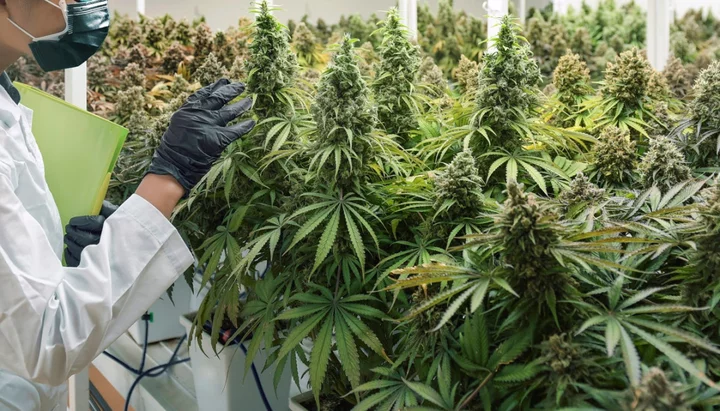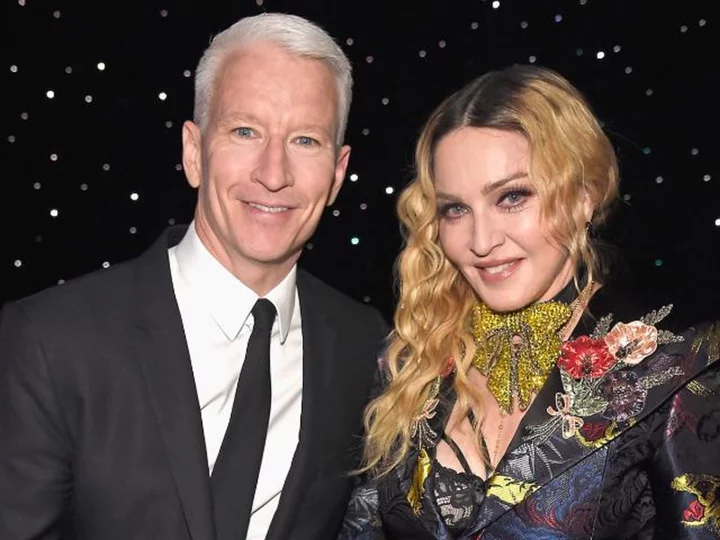
Prigozhin alludes to threats in new video release
The video appears to have been filmed shortly before the Wagner chief died in a plane crash near Moscow.
1970-01-01 08:00

Marijuana users have higher levels of toxic metals in blood and urine, study finds
People who use marijuana were found to have higher levels of lead and cadmium in their blood and urine, in comparison to those who do not use weed, according to a new study. The team of researchers at Columbia University analysed data from blood and urine samples collected between 2005 and 2018 as part of the National Health and Nutrition Examination Survey, a program conducted by the National Center for Health Statistics. They looked at samples of 7,254 people who said they had used marijuana in the last 30 days. Participants were examined for levels of heavy metals and 358 people were found to have 27 per cent higher blood lead levels than those who said they didn’t use either marijuana or tobacco. There were also 22 per cent higher levels of cadmium in those marijuana users according to the research, which was published Wednesday in the journal Environmental Health Perspectives. Researchers also found that the urine samples showed similar results. High levels of cadmium can cause stomach irritation, abdominal cramps, nausea, vomiting and diarrhoea, according to Better Health. Researchers found that although tobacco is the main source of cadmium exposure in the general population, the study showed similar exposure levels among cannabis users. “For both cadmium and lead, these metals are likely to stay in the body for years, long after exposure ends,” Tiffany Sanchez, an author of the study and an assistant professor of environmental health sciences at Columbia’s Mailman School of Public Health said to NBC News. As cannabis plants can absorb heavy metals from soil - the new findings demonstrate that heavy metals in cannabis plants can also wind up in the human body. “Previous studies have measured metals in marijuana plants, products, or marijuana smoke,” study authors have said. Lead exposure can be particularly harmful to children and pregnant women. In adults, chronic exposure to lead increases the risk of high blood pressure, heart problems and kidney damage. “Our study wasn’t able to tease apart whether or not self-reported cannabis users were using medical or recreational cannabis, so we can’t say definitively if medical cannabis users specifically had higher metal levels,” Sanchez said as reported by CNN. “This is something that should be evaluated in future studies.” Heavy metals bind to parts of your cells that prevent your organs from doing their job, according to the Cleveland Clinic and symptoms of heavy metal poisoning can be life-threatening and can cause irreversible damage. “Immunocompromised people, such as those going through chemotherapy, may be at greater risk from metal exposure or from other common cannabis contaminants like molds. However, this is very much an understudied area,” Sanchez added. On Wednesday, the Department of Health and Human Services recommended that the Drug Enforcement Administration ease restrictions on marijuana by moving it from Schedule I drug to Schedule III. HHS Secretary Xavier Becerra said on X, the platform formerly known as Twitter, that the agency has responded to President Joe Biden’s request “to provide a scheduling recommendation for marijuana to the DEA.” “We’ve worked to ensure that a scientific evaluation be completed and shared expeditiously,” he added. Senate Majority Leader Chuck Schumer said in a statement that HHS had recommended that marijuana be moved from a Schedule I to a Schedule III controlled substance. “HHS has done the right thing,” Schumer said. “DEA should now follow through on this important step to greatly reduce the harm caused by draconian marijuana laws.” Rescheduling the drug would reduce or potentially eliminate criminal penalties for possession. Marijuana is currently classified as a Schedule I drug, alongside heroin and LSD. According to the DEA, Schedule I drugs "have no currently accepted medical use in the United States, a lack of accepted safety for use under medical supervision, and a high potential for abuse." Additional reporting from agencies Read More Biden health agency recommends classifying marijuana as lower-risk, opening potential for major policy changes Seth Rogen reveals why he smokes marijuana ‘all day, every single day’ Rugby star Ugo Monye: Boarding school shaped my career and my personality Queen Latifah calls for more ‘inclusive healthcare’ for people with obesity As Simon Cowell shares positive therapy experience, how can it help even if you aren’t in crisis?
1970-01-01 08:00

Wild boar in Germany are strangely radioactive – now scientists know why
Wild boar in southeastern Germany have long contained high levels of radioactive substances, which has been attributed to the 1986 Chernobyl nuclear disaster. But as radioactivity levels have fallen in other animals, they have stayed much the same among boar. Now, scientists have worked out the secret behind the so-called “wild boar paradox”. Research shows there is another culprit for the high levels of radioactivity: nuclear weapons tests from the mid-20th century. And both the weapons and the nuclear reactor meltdown continue contaminating the boar because of their diet. While the muscular boar seem healthy, the dangerous levels of radioactive caesium, the main contaminator, have prompted people to stop hunting them. In turn, there is now an overpopulation issue. “Our work reveals deeper insights into the notorious radio-cesium contamination in Bavarian wild boars beyond the total radionuclide quantification only,” radioecologist Felix Stäger from Leibniz University Hannover wrote in a paper. After a nuclear incident, radioactive materials can pose a significant threat to ecosystems. This happened after the Chernobyl meltdown in 1986, where there was an increase in radioactive caesium contamination. The main component of this, caesium-137, has a half-life of about 30 years, meaning it loses its radioactivity fairly quickly. However, caesium-135, which is created via nuclear fission, is far more stable. It has a half-life of more than 2m years. The ratio of cesium-135 compared to cesium-137 can help us work out where the cesium came from. A high ratio indicates nuclear weapon explosions, while a low ratio points to nuclear reactors like Chernobyl. So the researchers analysed caesium levels from 48 wild boar meat samples from 11 regions of Bavaria. It turns out that nuclear weapons testing was responsible for between 12 per cent and 68 per cent of the unsafe contamination in the samples. “All samples exhibit signatures of mixing,” wrote the researchers. “Nuclear weapons fallout and [Chernobyl] have mixed in the Bavarian soil, the release maxima of which were about 20−30 years apart.” So while Chernobyl remains the main source of caesium in wild boar, about a quarter of the samples showed enough contributions from weapons fallout to exceed safety limits even before the reactor meltdown comes into account. And because wild boar eat so many truffles, it has been exacerbated. The fungus absorbs high levels of contamination from both sources. Wild boars' diets, which include underground truffles, have absorbed varying levels of contamination from both sources, which has contributed to the animals' persistent radioactivity. “This study illustrates that strategic decisions to conduct atmospheric nuclear tests 60−80 years ago still impact remote natural environments, wildlife, and a human food source today,” the authors concluded. The study was published in Environmental Science & Technology. Sign up to our free Indy100 weekly newsletter Have your say in our news democracy. Click the upvote icon at the top of the page to help raise this article through the indy100 rankings.
1970-01-01 08:00

How to Sell and Smuggle Contraband in Starfield
How to sell and smuggle Contraband in Starfield to make some big Credits and avoid any conflict with a controlling faction's law enforcement during Contraband Scans.
1970-01-01 08:00

Fishing with fear as Philippines stands up to China
Fishermen are on the frontline of a worsening territorial standoff as Manila asserts itself against China.
1970-01-01 08:00

Israeli soldier killed, Palestinian teen attack suspect shot dead amid violent surge
A group of soldiers was hit during a spate of violent incidents in the West Bank and East Jerusalem.
1970-01-01 08:00

NBA rumors: Tatum recruited Lillard, Ingram benching explained, Cuban says the quiet part loud
A fresh slate of NBA rumors: Jayson Tatum recruits Damian Lillard to the Celtics, Brandon Ingram gets benched by Team USA, and Mark Cuban gets too honest.
1970-01-01 08:00

Anderson Cooper is still 'mortified' by his 'terrible' dancing on stage with Madonna
Anderson Cooper has mixed feelings about the time he briefly shared a stage with Madonna.
1970-01-01 08:00

Queen Latifah calls for more ‘inclusive healthcare’ for people with obesity
Queen Latifah is calling for more inclusive medical care for people with obesity. In a new interview as part of her work with It’s Bigger Than Me, a US-based campaign by healthcare company Novo Nordisk, the actor and rapper recounted how many people with obesity experience weight discrimination from medical staff. Sharing her personal connection to the issue, the Girls Trip star – whose real name Dana Owens – toldPeople: “I saw my cousin have to deal with this issue – she was morbidly obese and she went in and out of the hospital. “There were so many things she had to face. And for a doctor to just say, ‘Oh, you need to lose some weight.’ Well, it’s not that easy. Everyone’s bodies are not the same. We all deserve specific individual care.” Latifah, 53, backed the campaign’s call for “inclusive obesity care” ensuring everyone can feel “welcome and respected” when they visit the doctors. “Imagine how good it must feel when a patient walks through that door and sees the appropriate chairs or office set-up, that someone has considered them, has taken the time to think about what their needs are,” the Hairspray star said. “There’s a sense of, ‘I’m respected here. I’m welcome here’... If you’re discouraged to get into your doctor’s office, then that’s not a good thing.” When a person is defined as obese, this means that they are overweight “with a lot of body fat”, the NHS says. The World Health Organisation (WHO) explains that the terms “overweight” and “obesity” are used to refer to “abnormal or excessive fat accumulation that presents a risk to health”. It is estimated 64 per cent of adults in the UK are obese or overweight. Last summer, a British study found that obese patients were being “weight-shamed by doctors and nurses”, with weight stigmatisation pushing patients to skip appointments. The stigmatisation leads to patients avoiding appointments, feeling depressed or anxious and being more likely to put on weight, scientists said. The British researchers said there needed to be better education for medics over “weight stigma” to avoid this spilling into healthcare. The scientists looked at more than 3,000 research articles on the topic to identify strategies to tackle negative biases towards overweight and obese patients. In doing so, this could help to tackle the UK’s obesity crisis, as negative biases over weight limit access to healthcare services and treatment. Read More Joe Wicks defends decision to pull five-year-old daughter out of school Woman adopts husband’s ex-wife’s son after growing up in foster care herself Man who went to Turkey to make himself taller says pain was ‘worth it’ As Simon Cowell shares positive therapy experience, how can it help even if you aren’t in crisis? Man who went to Turkey to make himself taller says pain was ‘worth it’ Terminally ill mum prepares for worst after numb hand turns out to be deadly disease
1970-01-01 08:00

Samuel Newey: British volunteer, 22, killed fighting in Ukraine
The family of Samuel Newey say he died fighting alongside Ukrainian forces on Wednesday.
1970-01-01 08:00

As Simon Cowell shares positive therapy experience, how can it help even if you aren’t in crisis?
X Factor boss Simon Cowell, 63, has shared that having discovered therapy in the past year, he feels as though “a weight has lifted off my shoulders”. The music mogul, who is behind The X Factor and Britain’s Got Talent, said he wished he had seen a therapist “10 or 20 years ago” in a recent interview with the Daily Mirror. He also shared that the deaths of his parents and the coronavirus pandemic had affected his mental health. Seeking therapy has been transformative for Cowell and it could do the same for you, whether you are in crisis, or just want to learn more about yourself. Cowell has said engaging in therapy had a “super positive effect” on his life and encouraged others to do the same, so here’s what you should know. There are different types of therapy Contrary to what many people may believe, counselling, where you sit and talk through events and reflect, is not the only form of therapy. “There are a whole host of different types of therapies available, from counselling, cognitive behavioural therapy, mindfulness-based cognitive therapy, acceptance and commitment therapy, interpersonal therapy, psychodynamic psychotherapy to eye movement desensitization and reprocessing,” explains psychologist and author of The Self-Care Revolution, Suzy Reading.Each one can have a different role in helping you get to know yourself better, handling trauma, feeling more grounded and coping more day-to-day. Therapy isn’t just for rock bottom Therapy doesn’t have to be a last resort. “When it comes to therapy, there are no hard and fast rules,” says Liz Ritchie, a St Andrew’s Healthcare psychotherapist. “Many people associate seeking help with crisis, but there is no reason why you cannot maintain regular sessions with your therapist. There is now a wealth of evidence that supports that therapy can also be a preventative form of mental healthcare, a little bit like going to a dentist or a doctor. “Life is busy and stressful, which means we don’t often have time to process cross words with a loved one, work altercations or issues with friends and family members.” You’ll understand yourself better You may think you understand yourself totally, but there are always new parts of ourselves to get to know. “Therapy helps us better understand ourselves, our relationships and the world, connecting us with how we feel, and why we might feel as we do. It is a journey of self-discovery, helping us appreciate our strengths and identify our values,” says Reading. It could give you an emotional toolkitIt can be helpful to have “an impartial sounding board to speak openly and honestly and the opportunity to be heard, validated and understood”, says Reading. “Therapy helps us challenge unhelpful thoughts, dispute self-limiting beliefs and can help us create new habits. Therapy is also about developing healthy ways to move through our emotions, creating a fresh toolkit of coping strategies and can be very practical in nature by helping us address specific challenges or goals.” But… it isn’t easy Unfortunately getting therapy is not always easy. If you do not have the financial freedom to be able to pay for a private therapist, you may be faced with long waiting lists and restrictive services. However, NHS therapy is an option and can be really helpful, so be sure to look into the options you can afford near you. Reading recommends checking out BPS and HCPC to find a qualified therapist. NHS resources can be accessed here. If you are seriously struggling with your mental health, and are at risk, please call 999 or the Samaritans on 116 123.
1970-01-01 08:00

Luis Rubiales' unwanted kiss labeled 'inappropriate' by UEFA president Aleksander Čeferin
UEFA president Aleksander Čeferin has condemned Luis Rubiales' unwanted kiss on Women's World Cup winner Jennifer Hermoso, describing it as "inappropriate" in an interview with French outlet L'Equipe on Wednesday.
1970-01-01 08:00
